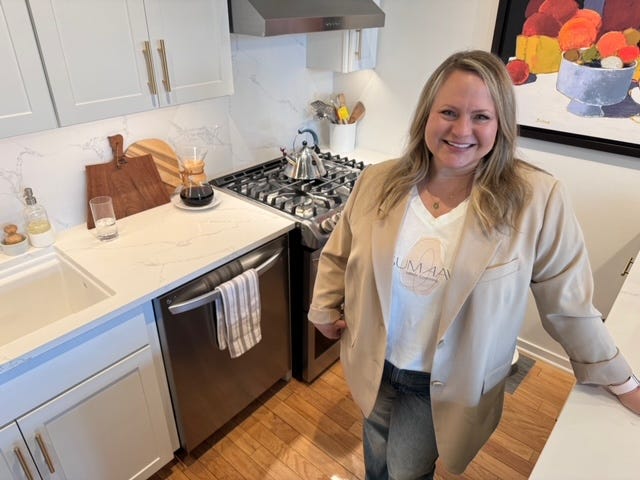
(WBBM NEWSRADIO) - Rima Zigaitis grew up as a normal kid, but in 1984 as a 16-year-old, she realized she was anything but normal.
"By about 16, I hadn't gotten my period, so my mom and I went to a gynecologist just for a check," she recalled.
After a misdiagnosis and painful unnecessary treatments, doctors would finally discover through a laparoscopy that she had something called Mayer-Rokitansky-Küster-Hauser Syndrome or MRKH, a reproductive condition that affects one in 5,000 women.
"It affects women's reproductive organs. You're typically born without a uterus or an underdeveloped uterus, without a vagina or an underdeveloped vagina and no cervix. You have ovaries but that's it,” she said. "Everything on the outside is typical. When you're a baby, you don't find out unless the doctors have some reason to give you an MRI or something to see what's inside, and, when you grow, you develop normal signs of puberty, but the lack of a menstrual cycle is the first sign."
She wasn't in pain but needed some corrective surgery to her vagina.
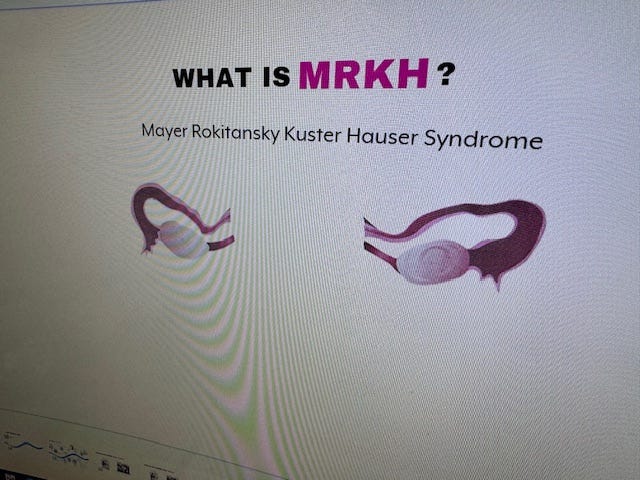
"I got diagnosed, two weeks later I graduated high school, and then I was in surgery,” Zigaitis said.
As she grew older, she said she buried the thought of it or the consequences of her condition.
"When they tell you have MRKH, and you don't have a uterus, I was informed that you can't carry your own biological children,” said Zigaitis. “You do have ovaries which have eggs. Now, they can be frozen for insemination. In those days, the technology wasn't that great, but I remember looking at a pamphlet, but the freezing techno wasn't great."
Everything looked normal on the outside, but on the inside, she was anything but.
"As much as it is a physical journey, it's an emotional journey,” she said. “Learning that you can't carry your own children, learning that you don't have the typical body parts that make you a woman, I did start to question am I feminine enough? When you date someone, when do you tell them? It goes with you with every relationship, with every phase of your life.”
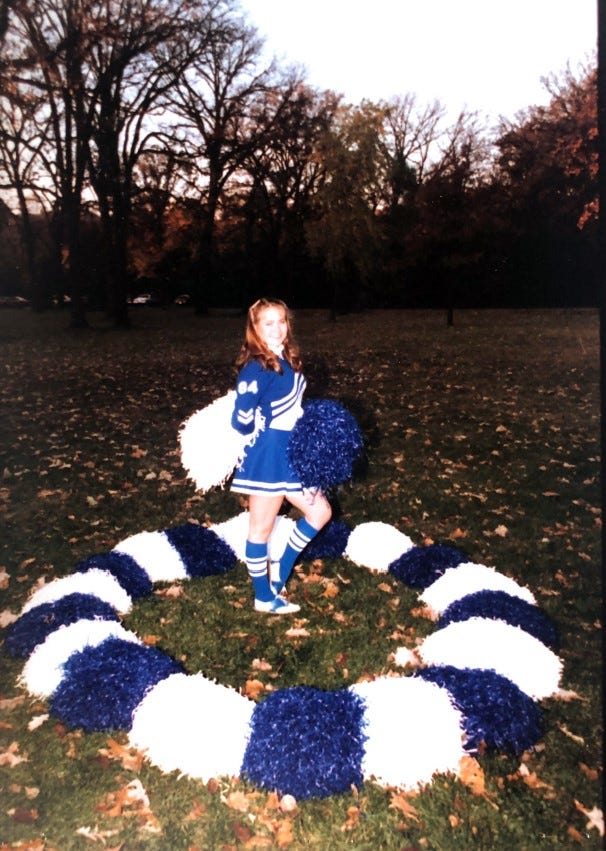
She soon realized there wasn't any support or mental health services for women like her.
"I really wanted insight, how do I change this? How do I adjust my mindset, how do I move past this? I eventually found someone in my 40s, but my journey was unique,” Zigaitis said.
She spent entire career as a corporate trainer and coach and decided to use those skills to create her own company. That’s how Sumaavi was born.
"I was sitting on the beach with a friend in California,” Zigaitis recalled. “I thought I had healed and accepted everything. I watched a man walk by with his family. He had burns on the outside of his body from an accident or military service. I thought to myself, ‘he's so lucky, his scars are on the outside,’" she choked up. "So, he doesn't have to hide them.
“I felt, I've been spending so much of my life hiding my diagnosis, hiding how I feel. That's when I knew I needed to go public and help others through my journey."
Created in 2021, Sumaavi is a counseling and education service for women with MRKH and other life changing conditions.
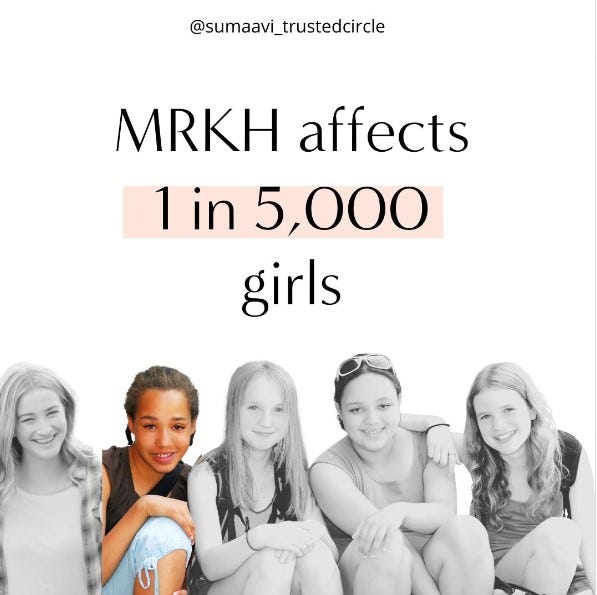
"There are these women that have nobody,” said Zigaitis. “There are no therapists that specialize in it. There are no coaches that are doing anything. People need the support. They are isolated because no one is talking about it because it affects such a private part of your body. You could be sitting next to someone in a Starbucks, and they may have it, but you'll never know because you don't talk about it. I thought I could take my skills and my personal journey and be what I needed when I was 16."
Zigaitis helps clients through one-on-one and group coaching through diagnosis, support and mental and physical wellness.
Most of all, she said she wants women to know that MRKH doesn't have to be a secret anymore.
"So much of living with it is being isolated, you don't talk about it, you're very reluctant to talk about it to anyone, doctors don't even know about it. You feel no one will understand it. The support is about easing the heavy burden of it all,” Zigaitis said.
Zigaitis also coaches women with infertility, alopecia and breast cancer.
"How can you live with your condition, your syndrome and still believe you're amazing and regain your confidence? It doesn't have to drive who you are,” declared Zigaitis.
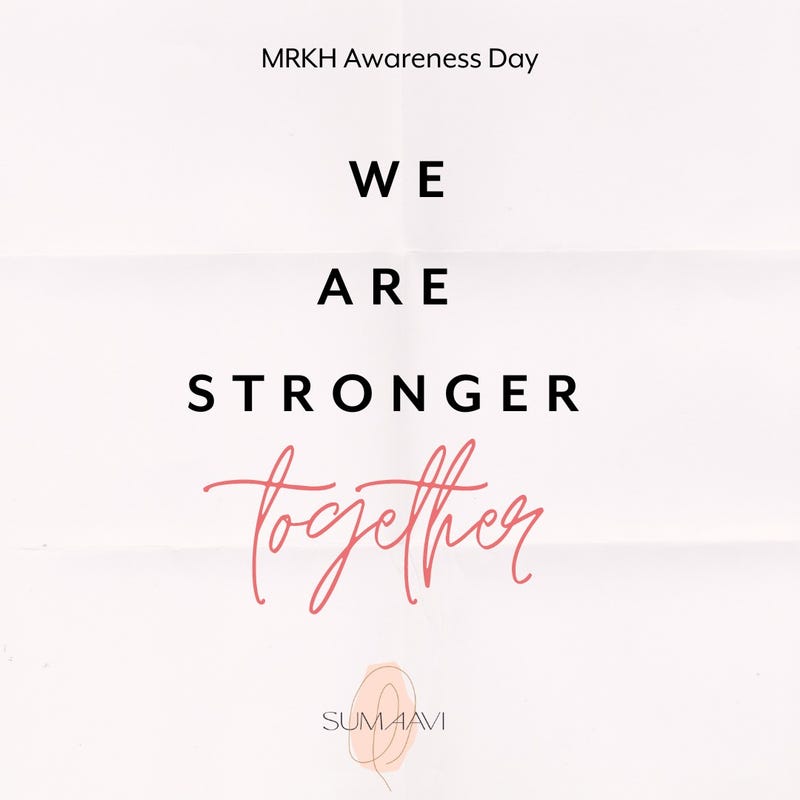
She said Sumaavi is one of its kind, for one of a kind women. She said it's a made up word, but it's a word that has new meaning to her and her clients.
"I came up with this name because I didn't have words to express my feelings, my whole life. To me now, Sumaavi means support and freedom." she smiled.
Researchers aren’t entirely sure what causes MRKH syndrome, but they know issues with genes and chromosomes play a role. The condition hasn't been traced to one specific gene. It’s not caused by something the birth parent did or didn’t do during pregnancy.
For more information about MRKH and Sumaavi, log onto sumaavi.com.
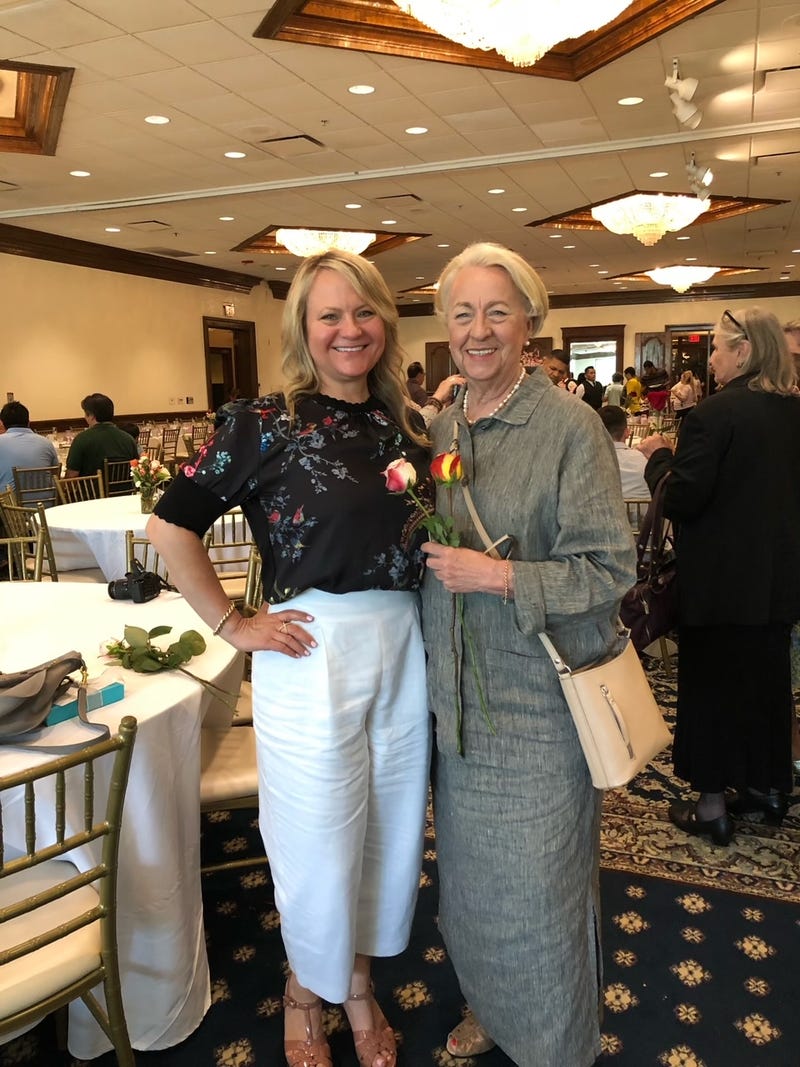
Listen to our new podcast Looped In: Chicago
Listen to WBBM Newsradio now on Audacy!
Sign up and follow WBBM Newsradio
Facebook | Twitter | Instagram I TikTok
